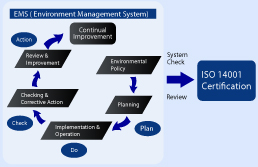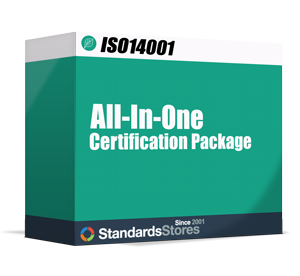What is ISO 14001:2015 Self Declaration?
 Although accredited ISO 14001 certification is not a requirement of ISO 14001, many organizations choose to seek accredited certification as an independent confirmation that their EMS meets the requirements of ISO 14001. If all elements of ISO 14001 are incorporated into the management process, the organization can prove that it has confirmed to ISO 14001. There are four ways of doing this
Although accredited ISO 14001 certification is not a requirement of ISO 14001, many organizations choose to seek accredited certification as an independent confirmation that their EMS meets the requirements of ISO 14001. If all elements of ISO 14001 are incorporated into the management process, the organization can prove that it has confirmed to ISO 14001. There are four ways of doing this
- Make a self-determination and self-declaration
- Seek confirmation of its conformance by parties having an interest in the organization, such as customers
- Seek confirmation of its self-declaration by a party external to the organization
-
- ISO/IEC 17050 Supplier Declaration of Conformity: ISO/IEC 17050-1:2004 and ISO/IEC 17050-2:2004 give additional significance to a supplier’s declaration of conformity.
4. Seek certification/registration of its environmental management system by an external organization. You can learn more about how to select a registrar.
Option Clarifications
- Option 1 is oftentimes referred to as “self-certify or “self-certification”. This is not accurate and is not accepted under ISO terms and definitions. This can be confusing to the marketplace and therefore it needs to be called either self-determination or self-declaration.
- Option 2 is often called a customer or 2nd party audit- this is acceptable.
- Option 3 is an independent third-party process by an organization based upon an engagement activity and delivered by specially trained practitioners.
- Option 4 is becoming certified by an independent third-party. This has become widely used by all types of organizations.
ISO does not control conformity assessment. Its mandate is to develop and maintain standards. ISO has a neutral policy on conformity assessment. Each one of the 4 options serves different market needs. As an organization, it is important to carefully understand what works best for you and what serves your market needs.
Self-declaration is an option unique to this standard, and thus organizations can simply use ISO 14001 as a guideline. Although entities can self declare conformance to ISO 14001, this only means that they conform to a prescribed system, not to prescribed environmental technologies, pollution levels, or safety.
ISO 14001 Certification has many advantages and we recommend that companies become certified through third-party certification bodies (CB’s, or Registrars) like ISO 9001, etc.
This is a business decision. But there are several markets, financial and trade advantages realized with certification. It may change the opinions of customers, insurers, and non-certification may limit trade.
Keep in mind that ISO 14001 does not replace existing environmental regulation but certified companies are typically more quickly alerted to environmental issues.



